How life is in a Socialist Country
A certain part of the US population likes to throw around the word “socialist” a lot, often without knowing what it even means.
In most cases the word is used to describe the situation that the government does something, especially if that action has something to do with necessary distributions of money. Or, if it is some dictatorial action, it is labeled “communism”.
In fact I have heard even Germany described as a socialist country so often that I now use that term mockingly whenever a US citizen thinks something is bad in his country, like: “In my socialist Germany it would be illegal to screw you that badly!” or “In socialist countries like Germany you would not need to sell your home to get a cancer treatment!”
But the inflationary use of that word is troublesome in many aspects so I wanted to have a closer look at one question: How is life in a socialist country today (compared to e.g. a “capitalistic” one)?
The answer is surprisingly hard to give. First of all: What is a socialist country? (Or, often used as synonym, communistic?)
For nearly 30 years now we do not anymore have the big Eastern Block around the Sowjet Union, who described themselves as communistic (but never were). The same applies to the area where I live in – Eastern Germany – which called itself “real existing socialism”, but was a real existing party-oligarchic-dictatorship.
We don’t have those countries to look at. The closest to that historical Communistic Block is today’s China, and that is a bad example. For one, it is again not a socialist bottom-up country but an autocratic top-down government, and the economy looks more like a crony-capitalism based model mixed with dictatorial state-ordered economy (like switching off factories so they don’t pollute the Olympic Games(tm)).
For socialists the core morals are equality, justice and solidarity, and while I can’t say much about the latter in China, the first two are certainly not universal in China.
The only other historical remnant of the communistic time is Cuba, and that is an even worse example. Cuba is a true dictatorship and worse (for our purpose), the island has been economically isolated by the US and US-led countries. You can’t objectively judge who is the better racer if you take away all cars from one team…
There are other countries with dictatorship and economic isolation, but they are hard to look at because they are too poor or too restrictive for broad, open internet. And of course, their “capitalism” is often pure crony-capitalism, and that would be unfair to compare to socialism (but maybe fair to the historical communistic countries).
But we are lucky! There is a current-time socialist country that is not isolated economically and that is not only socialist by name but indeed by actions.
The name of the country: Bolivia.
The name of the president: Evo Morales. Morales is a very important person, so I start with a bit of history.
Morales is the leader of the party MAS (Movimiento al Socialismo – Instrumento Político por la Soberanía de los Pueblos). So we are lucky here, they describe themselves as socialists.
The first big election result of the MAS was in 2002, when it reached second place with 21% of the votes. This election was already under the banner of anti-neoliberalism (stop of privatizations of state or communal firms) and in part anti-americanism, like in the demand of the stop of the dangerous “war on drugs” that the US led and which often was just a war against the indigenous people.
In 2005 there were new elections, which became a fight between the neoliberals and the “anti-american” side which opposed the economic-political model that the US embodies.
The cores of Morales’ campaign were:
- Nationalization of the natural gas industry, as per 2004 referendum, through new contracts.
- Land that is unused because of speculations should go to the state.
- A new constitution.
- Fight against corruption and government structures that allow corruption.
- Austerity in most areas, to put that money towards education and health of the broad masses.
MAS won the elections with this decidedly socialist agenda and Morales became the first indigenous president of Bolivia.
The new constitution was enacted in 2009 and Morales and his MAS were re-elected two times with more then 60% of the votes.
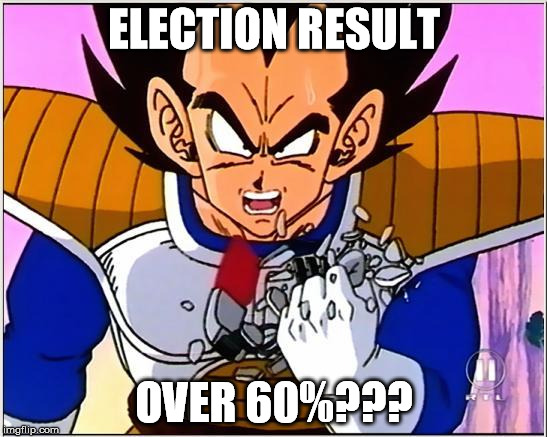
As per the new constitution, new autonomous institutions were created, for example the state company for oil and gas and the state mining company in the economic sector. Most interesting though is the Defensoría del Pueblo that gives the people legal help, especially in cases of abuse of office. I don’t know about any similar construct anywhere in the world.
In the index of economic freedom the country is on place 168 of 180, which for some is the only indicator for socialism they need. So here again, the current Bolivian government calls itself socialistic, has a socialistic agenda and is “socialistic” in economy ranking.
I just want to make that point crystal-clear because the results will surprise the “part of the US population” I mentioned above.
A Story of Success
With the nationalization of the oil and gas industry, now the majority of the profit goes to the state. With that Bolivia has financed social programs and halved extreme poverty from 32% to 17% of the population in just a decade. The life expectancy, which rose from 40 years to 59 years in the time of 1950-2000, has increase to 68 in the year 2015.
The economic growth for 2017 is estimated to be 4% (2016: 4,1%), one of the highest in South America, while the unemployment rate is the lowest on that continent with just 4,1%. The inequality between the richest 10% and the rest has decreased from 128 times to 37 times.
This likely played a big role in an important record for the country: political stability. In the history of the country the presidents (or in a lot of cases more correct dictators) on average didn’t even last two years, often removed violently by the next short-time “president”.
In contrast to that violence, the elections were not only quite peaceful, the 12 years have also seen an unprecedented amount of 47 plebiscites.
This is in line with the new constitution that describes Bolivia as a plurinational, participative and community oriented democracy (yes, extremely social-ist here, too).
The societal centerpiece of Morales politics is the de-colonization. The indigenous people, who amount to 60% of the population, have been prevented from participation in economy and politics for 500 years.
In the 12 years of Morales’ government, they have claimed their country back. There is even the talk of a “new economic elite” of the indigenous Aymara (Morales is one, too). They can now not only go through the streets in their traditional clothes without getting attacked, they now also build colorful houses, called “Cholets” (more about that topic here. Their wealth (money in bank accounts) has 4-folded in the years between 2004 and 2012.
Surprisingly(?) even the old elites, the white owners of vast amount of lands, have admitted that under Morales everything got better and everyone won – even those for whom the prior dictator(s) was a close, personal friend.
That does not mean that they like the rise of the indigenous people, though.
Darker Days Ahead?
Since 2015 the international drop on prices (mainly oil and gas) have decreased Bolivia’s export income by 23% and put the budget to -13%. (Which, in absolute terms, is still only 2 billion US dollar dept, less then a US presidential election campaign.)
If the prices don’t go up again fast, that puts quite a damper on the scope of projects that can be financed. It is also a leverage point for the old white elite to get rid of the first successful indigenous president.
The next election is in 2019, and Morales does not want to step down (even if he should according to “his” own constitution). What happens then is totally in the open. We can only hope it will not result in a fall back to dictatorial or indigenous-supressing times.
(German) sources for most numbers: nachdenkseiten and Wikipedia
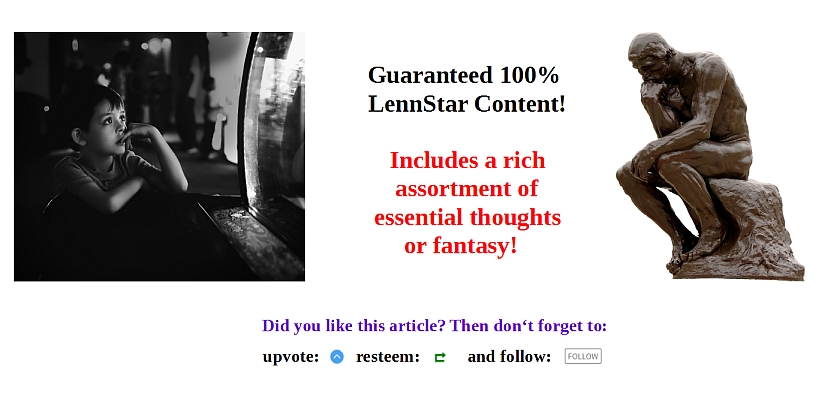
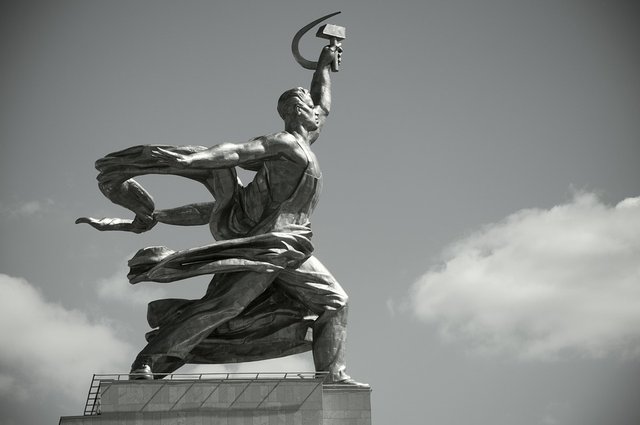


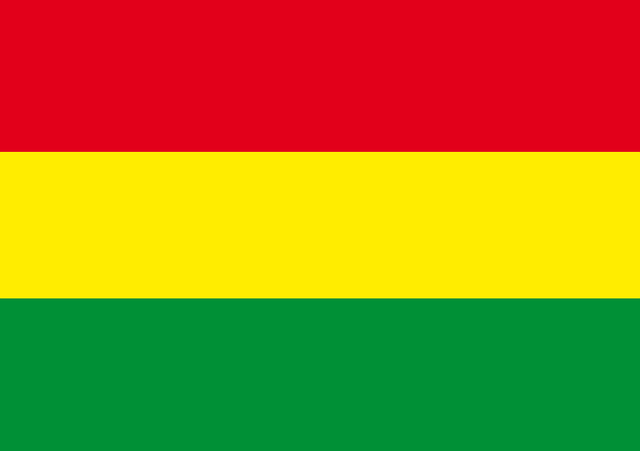

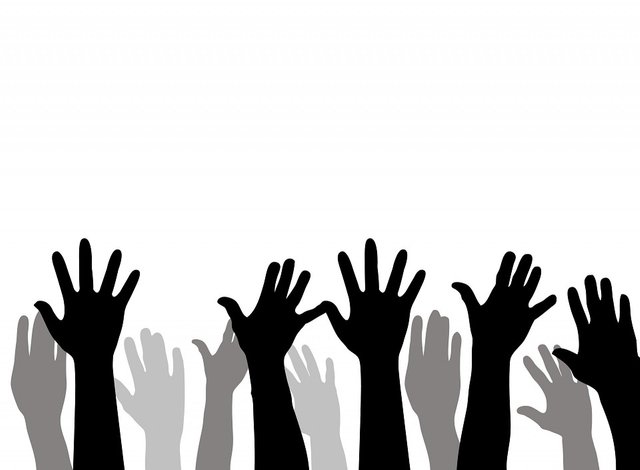

I can tell you what it is like to live in a socialist country, mainly because I live in one:
The government controls 90% of the means of production, and people are dying of hunger. Bureaucracy is huge, the health system is bad, services are at the lowest global standards. People are fleeing the country as in Cuba. Everything, and I repeat Everything, is excessively politicized, the minimum wage, which in turn is the salary of 75% of the population, does not exceed $ 8 per month. Inflation is in excess of 1000%. That's Socialism.
And which country is that?
Venezuela.
Some time ago I made a short publication about it: https://steemit.com/politics/@vieira/how-socialism-made-venezuela-a-poor-country
There is the main culprit, and it happened to capitalistic countries, too. In fact it is a well-known "paradox" that those countries with the most natural resources, especially oil, have the lowest economic growth.
Most of them make the error on relying too much on it.
https://en.wikipedia.org/wiki/Resource_curse
And yes, Venezuela did a lot of (maybe ideologically based, maybe power-hungry based, that I cannot judge) errors.
From what I know, besides the oil curse, the second big economic error was fixed prices. Even Eastern Germany, who was world leader in that (and really really good), had quite big problems with that, and they didn't make errors like putting the price for the car fuel to hilarious low levels.
The price of fuel has always been extremely low in Venezuela, it is not the main cause of the problem. The matter is that the State destroyed all the national production by nationalizing the industry, and made us more dependent on oil. Public spending was enormous, in Venezuela over 500,000 million dollars was wasted over the course of 10 years, invested mainly in various social programs. It is not only about price control, but also about currency exchange, labor legislation, expropriations and others. When the barrel of oil exceeded 100 dollars per barrel, both Jean-Luc Mélenchon of France, Pablo Iglesias and Monedero of Spain, Jeremy Corbyn of the United Kingdom, Noam Chomsky, Heinz Dieterich Steffan, Ignacio Ramonet among many other references of Socialism and anti-capitalist system like the filmmaker Oliver Stone, they declared that Venezuela was the way to go, they proclaimed Venezuela as an example for the world, and supported and financed by the government of my country, many other governments of the left came to power or were greatly helped in South America and the Caribbean, such as Bolivia, Nicaragua, Argentina, Cuba, Ecuador and many others, in what was called the Pink Tide, or 21st Century Revolution, all ended in complete disaster.
img credz: pixabay.com
Nice, you got a 21.0% @trafalgar upgoat, thanks to @lennstar
Want a boost? Minnowbooster's got your back!
The @OriginalWorks bot has determined this post by @lennstar to be original material and upvoted(2%) it!
To call @OriginalWorks, simply reply to any post with @originalworks or !originalworks in your message!
Socialism is fine, you can have socialist institutions within a capitalist environment. I don't have a bank account, I have an account with a mutual 'Building Society' where every customer is an owner and the staff are too. We all vote on the direction of the society and all profits either are redistributed to the owners or at held over as investment reserves.
As an owner I'm treated with respect, when was the last time you got that from your bank?
The definition of a coöperative business, not a government though :-)
Yes and that is my point, socialism does not automatically equal totalitarian government, which is what a lot of people think it means.
Let's look at a few definitions of government:
the form or system of rule by which a state, community, etc., is governed:
monarchical government; episcopal government.
the governing body of persons in a state, community, etc.; administration.
That bank seems to be a community. The execute board (or whatever they have) would be the government of that bank.
Does the execute board have the right to force the customers to stay, or to pay with violence? If so, it's a government, if it's voluntary, with an real contract signed by all humans involved, it's not a government. Then it's voluntaryism.
A government does not need to be able (or actually do) to enforce something. In fact an entity created by only voluntary means is a government, even if people obey that entity out of pure voluntary conduct, too.
For example an elected elder whose decisions are only enforced by the insight (or if you want to put force in it, by the society's pressure) of the people is a government (and those types are in the most slots of the "100 oldest existing governments").
A man with a gun that forces you to give him your money is not a government even if he says he is and has a book full of rules.
the entity created by voluntary means is not a government. It is bound by a contract just like the persons involved. It can't force all The people in an arbitrary territorial jurisdiction that they must pay or participate only the people who consciously make a trade with them.
But they can break the contract any time, there may be a fine or something else but they agreed on that when they entered the contract.
A man with a gun that forces you to give him your money is percieved as a government if he says he is and has a book full of rules and a constitution and calls himself the president of the usa or some other territorial jurisdiction, he only does not hold the gun himself he hires people to hold the gun for him, he hires them, with the theft money he extorted before, ahum I mean tax money ;)
He is percieved as "government" by the faithful who believe him and his bible and his commands, but in fact he is a robber an aggressor and a murderer
Respect is earned, not given.
If you have a few millions to give, you will earn a lot of respect in a capitalistic environment.
Good read before going to bed.
But how free are you in a socialist country if you don't agree with man made rules and law?
They still will tax you and use YOUR money for things you might not agree with. Some people call this stealing
How free are you then in a dictatorship? Or a democracy? In all cases, if you don't follow the law, you are in trouble.
Yes, and I still can't comprehend the reasoning beyond that. Maybe those people should read what I found 3 days ago:
https://aeon.co/essays/if-your-pay-is-not-yours-to-keep-then-neither-is-the-tax
Who says you are free in a dictatorship! And even democracies limit you personal freedom to a certain level.
Had a look at this article.
That's what I mean when people argue like that. It's a very radical opinion but they do how many valid points.
And actually very easy to understand if you argue from a real free-market point of view. Then there shouldn't be any government and people should only act after some consensus is found.
Not sure myself how this can be archived
Legal and illegal do not exist. Imagine that I declare something to be illegal (or legal) for all the humans in the world. ( or a color on a map with a line around it) Where the hell did I get the right to write down a threat and declare something illegal and punish the sinners who do not obey my threat or opinion.
I'm not god I'm a human being just like all the human beings in the world.
It does. Illegal is what the law says is illegal. That for example is the reason why taxes can't be theft because the law does not declare them theft.
It might be a sort of circular thing, the legal/illegal and the law, but it still exists.
Often by the power of your gun in your hands. That still makes illegal exist.
The law is an opinion with a gun.
If it exists than santa claus, god, and all the other fantasies are also exist.
It is a circular thing it's the same logical fallacy as; I believe the Bible is true because the Bible says it is true.
Who does the declaring, and where did the mortal get the right to declare that taxation is not theft?
Would taxation be theft if tomorrow someone declares it theft?
If I rob my neighbours and the day before I wrote on a piece of paper that the robbing is not theft, but taxation is it then taxation, and not robbing or theft?
And if I can not do that, could my neighbour do that to me, or ten neigebours or hundred, a million, 7 billion perhaps. Or would it still be theft.
The state is big maffia with the precieved "right to rule by force"
If mafia were a little smarter they would call their "protection" racket legal and taxation. And if they where really smart they held all the children prisoner and teached them how good the mafia is.
If I get something by the power of a gun it's theft or murder or rape or whatever It's criminal behavior.
Murder is not bad because it's illegal and it would not be good If it where declared legal, like they have done in the past and now.
Socialism is the inevitable transition period following capitalism. It is not a form a government or an economic system. It transitions into something, whether that something is communism, anarchy, or what have you. The "socialization" of capitalist priorities is an alright way to look at it. There is no such thing as a socialist country.
Hey, don't bring up Marx here :D
Socialism is an extremely hazy description, and to show that Socialism includes more then party-dictatorships with planned economy (which is not even Socialism, at least not the form of any of the countries in history that had this) was the main motivation do make this post.
xD talks about socialism doesnt want to talk about the principal discoverer of socialism
But you can't have a socialist system! It's just impossible! You're describing communism and its dictatorial history -- the forced redistribution of wealth through meticulously planned economies enforced by a single entity, usually a single person.
Communism in the past has been implemented through dictatorships because frankly that is easier (though obviously less effective) than the process called socialism which requires no intentional interference and needs time. You're spreading misinformation! = )
These things Morales ran on have very little to do with socialism. A state is not necessary to socialism and is frowned upon by many socialist thinkers.
Thats another point I often say to "A certain part of the US population". But of course you CAN have socialism in state form.
idk, id have to see it and how it's different from other forms, mainly communism. fantastic read though -- fun to argue about this stuff =)
The eastern block countries were in fact communist and this is offensive to the 66,000,000 Slavs tortured and murdered by communists last century.